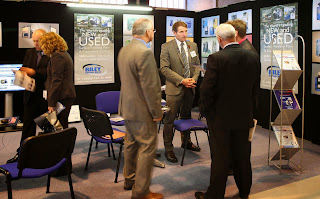Every
year, usually in April, our accountant sends us a weighty tome explaining all
of the tax changes in the Budget and the implications for businesses. This
year, we’ve had two Budgets, so no doubt there will be a further accountant’s
summary winging its way to us any day now.
Budgets
are something that I confess I don’t normally pay a lot of attention to. This
one, however, makes some significant changes that will have a major impact on
small/medium enterprises such as ours.
The
Living Wage increases to £9 an hour for those over 25 by 2020. This will
obviously make a difference to the fixed costs of those companies like us that
employ some lower paid or unskilled staff. At the same time, corporation tax is
being reduced from 20% to 18% by 2020. This compares to 40% in the USA, 33% in
France and Japan and 30% in Germany.
Unlike
the global giants Amazon, Starbucks, Google etc., our company actually pays its
full whack of corporation tax, employers’ national insurance and so on, so this
reduction will be a very welcome windfall.
We
can only hope that, by 2020, we are still making sufficient profits on which to
pay the tax, and that the ill winds that plunged the world into recession seven
years ago don’t return anytime soon.
Of
course, the UK will only return to full economic health over the next five
years if we can improve our productivity, which we are told lags behind
countries such as the USA, Germany, China and even France.
In
our own small way, our company has made a serious attempt to improve our own
productivity over the past two years. You would think that buying, refurbishing
and reselling plant and machinery is a fairly simple business model in
comparison to the complexities of those involved, for instance, in
electroplating of diverse products and components.
However,
even a streamlined organisation such as ours has issues with productivity.
Valuing and purchasing surface finishing equipment from all around the world
has to be dealt with in an efficient and organised fashion. When it comes to
processing the items through our various sales channels, we have to follow
procedures that contribute to good productivity and increased profitability.
Finally,
our online marketing and sales processes must be fine-tuned to meet the needs
of the global marketplace, having the right good in the right place at the
right time.
In
the UK, it is our largely foreign-owned automotive industry that is leading the
way on improved productivity. These vast organisations have benefited from the
research, development and investment that come with globalisation. They have
also tapped into the skills that already were present in this country, where we
have been building cars, motor cycles, vans and trucks for over 100 years.
This
in turn makes rigorous demands on all of the sub-contractors to the automotive
sector, not least those of us involved in product finishing. So compliance with
the first tier results in enhanced productivity in the second and third tiers.
This then has a positive knock-on effect on our exports for the benefit of the
whole economy.
I
look forward to meeting you all at Surface World in September. I know for a
fact that Nigel Bean and his colleagues are making strenuous efforts to make
the show a success this year and they deserve all of our support. Hopefully,
the forthcoming autumn season will be a productive period for everybody in our
industry.








